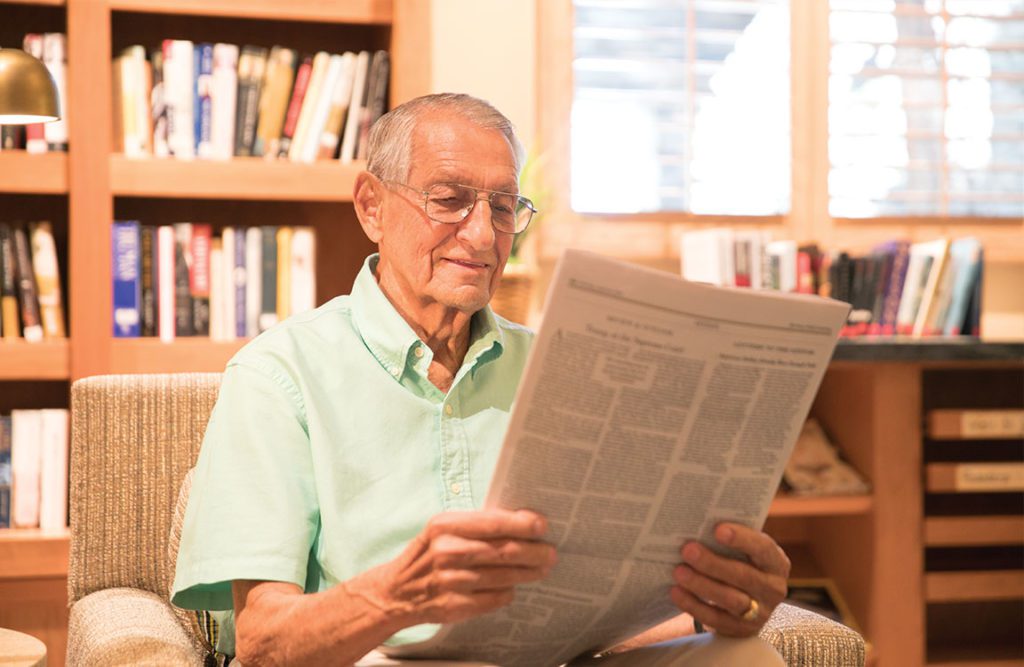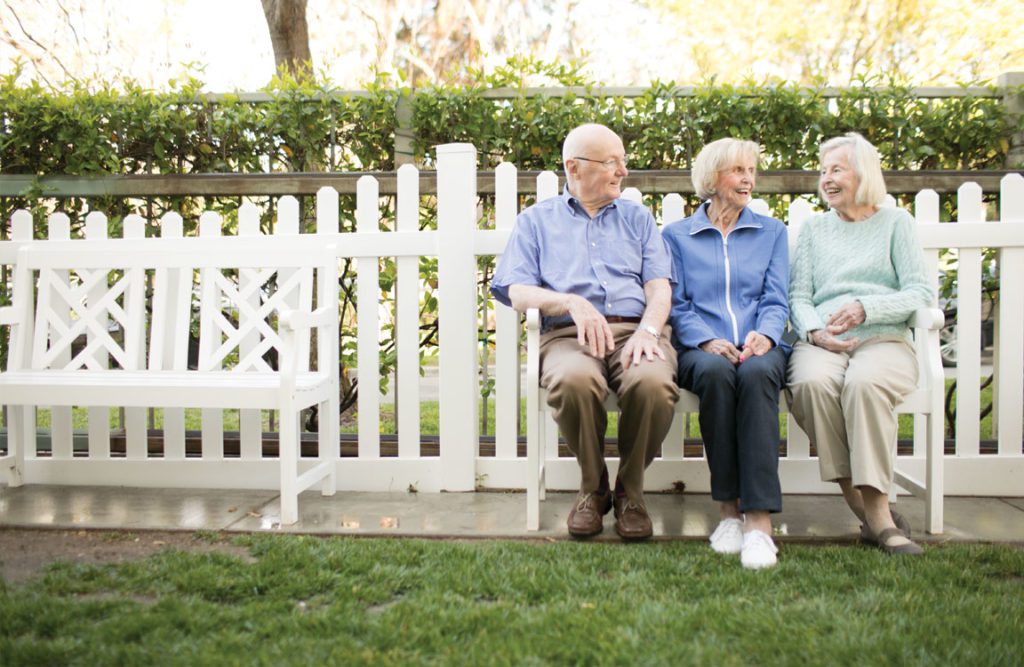December 16, 2024
Sleep Solutions: Six Expert Tips to Help Older Adults in Pasadena, CA to Beat Insomnia

Understanding Insomnia in Older Adults
As you navigate the later stages of life, one of the most common challenges you may face is insomnia, a sleep disorder known for difficulty falling asleep, staying asleep or having non-restorative sleep. Insomnia can be a debilitating condition, impacting your overall well-being and quality of life. Contrary to popular belief, insomnia is not a normal part of aging. While it’s true that sleep patterns may change as you grow older, persistent insomnia should not be dismissed as an inevitable consequence of getting older.
Common Causes of Insomnia in Older Adults
- Medical conditions: Certain health issues, such as chronic pain, respiratory problems or neurological disorders, can disrupt sleep patterns.
- Medications: Some prescription drugs, over-the-counter medications and supplements can interfere with sleep quality.
- Sleep disorders: Conditions like sleep apnea, restless leg syndrome or periodic limb movement disorder can contribute to insomnia.
- Psychological factors: Stress, anxiety, depression or grief can make it challenging to fall asleep.
- Lifestyle factors: Factors like an irregular sleep schedule, caffeine consumption or lack of exercise can impact sleep quality.
- Environmental factors: Noise, light exposure or an uncomfortable sleep environment can disrupt sleep patterns.
Expert Tips to Beat Insomnia in Older Adults
- Tip One: Establish a Regular Sleep Schedule
Keeping a regular sleep routine can help regulate your body’s internal clock. When your circadian rhythm is synchronized, your body will naturally feel sleepy at bedtime and alert during the day. To establish a sleep schedule, follow these steps:
- Determine your ideal sleep duration: Most adults need between seven and nine hours of sleep at night. Identify the number of hours that allow you to wake up feeling rested and alert.
- Set a consistent bedtime and wake-up time: Based on your ideal sleep duration, calculate a bedtime and wake-up time that works best for your schedule.
- Stick to your schedule: Consistency is key. Aim to go to bed and wake up at the same times every day, even on weekends or days off.
- Avoid napping during the day: Daytime naps can interfere with your ability to fall asleep at night. If you must nap, keep it short and avoid doing it late in the afternoon or evening.
- Tip Two: Create a Relaxing Routine
This can help signal to your body that it’s time to prepare for sleep. A relaxing routine can help reduce stress and anxiety, making it easier to fall asleep. Here are some suggestions for creating a soothing bedtime routine:
- Take a warm bath: The warmth can help relax your muscles and help you feel sleepiness.
- Practice gentle stretching or yoga: Light stretching or yoga poses can help release physical tension and calm your mind.
- Engage in relaxation techniques: Try deep breathing exercises, progressive muscle relaxation or meditation to quiet your mind and reduce stress.
- Read a book or listen to calming music: Don’t do things like watching TV or using electronic devices, as the blue light can disturb your sleep cycle.
- Dim the lights: Lowering the lights in your living space can help trigger the production of melatonin, the sleep-promoting hormone.
- Drink a warm, non-caffeinated beverage: A cup of herbal tea or warm milk can be soothing and help you relax before bed.
- Tip Three: Optimize Your Environment
Creating a comfortable, conducive space for sleep can help you sleep faster and stay asleep. Here are some tips for bettering your sleep environment:
- Keep your bedroom cool, dark and quiet: The recommended temperature for sleep is around 65°F (18°C). Use curtains to block out light and consider using earplugs to minimize disruptive sounds.
- Invest in a cozy mattress and pillows: A supportive mattress and pillows that align with your preferred sleep position can help reduce discomfort and promote better sleep.
- Minimize clutter and distractions: Keep your bedroom clean, organized and free from clutter. Avoid using your bedroom for things other than sleep and intimacy, as this can create associations that make it harder to relax.
- Use calming scents: Certain essential oils, like lavender, can have a soothing effect before bedtime.
- Consider blackout curtains or an eye mask: Light exposure can disrupt your body’s natural sleep-wake cycle. Blackout curtains or an eye mask can contribute to creating a dark environment that leads to sleep.

- Tip Four: Manage Stress
Stress is a contributor to insomnia, especially among older adults. As you age, you may face various life transitions, health concerns or financial worries that can heighten feelings of stress, making it challenging to fall asleep or stay asleep. To manage stress and promote better sleep, consider the following strategies:
- Practice relaxation: Deep breathing or mindfulness meditation can help relax your mind before sleeping.
- Engage in regular exercise: This can help reduce stress levels and promote better sleep. However, avoid intense workouts close to bedtime, as they can be stimulating.
- Seek support: Talking to a loved one or a professional can help you process and manage stressful situations or worries that may be keeping you awake at night.
- Prioritize self-care: Do activities that bring relaxation, like reading, listening to music or spending time in nature.
- Consider cognitive-behavioral therapy (CBT): This is a form of therapy that can help you identify and change negative thoughts that contribute to insomnia and stress.
- Tip Five: Limit Stimulants and Electronic Devices
Certain substances and activities can interfere with falling asleep and staying asleep throughout the night. To promote better sleep, it’s important to limit or avoid stimulants and electronic devices close to bedtime.
- Caffeine and alcohol: Caffeine is an energizer that can make it difficult for you to fall sleep, so it’s best to avoid coffee, tea and sodas in the late afternoon. While alcohol may help you to fall asleep, it can disrupt your sleep later in the night, leading to poor sleep quality.
- Nicotine: Nicotine is a stimulant that can intervene with sleep quality. If you smoke or use other nicotine products, consider quitting or avoiding them close to bedtime.
- Electronic devices: The blue light that is released by smartphones and computers can disrupt your body’s natural sleep-wake cycle. Limit screen time at least an hour before bedtime and consider using blue light-blocking glasses or apps if you must use devices in the evening.
- Heavy meals: Eating one close to bedtime can lead to make it harder to fall asleep.
- Tip Six: Seek Professional Help if Needed
If you’ve tried various sleep strategies and still struggle with persistent insomnia, it may be time to seek professional help. Chronic insomnia can be a complex issue with underlying medical or psychological factors that require expert guidance and treatment. Here are some professionals who can assist you with insomnia:
- Primary care physician: Your health provider can evaluate your sleep issues, identify potential underlying medical conditions and provide appropriate treatment recommendations or referrals.
- Sleep specialist: A sleep specialist, such as a sleep medicine doctor or a sleep psychologist.
- Cognitive-behavioral therapist: A therapist trained in cognitive-behavioral therapy for insomnia (CBT-I) can help you change thought patterns and behaviors that add to your sleep problems.
- Mental health professional: If your insomnia is related to mental health concerns, a therapist or counselor can provide appropriate treatment and support.
Taking Steps Towards Better Sleep in Older Adults
Insomnia can be a challenging condition, but it doesn’t have to be an inevitable part of aging. By implementing these expert tips and seeking professional help when needed, you can take control of your sleep and enjoy the many benefits of a good night’s rest.
If you’re an older adult looking for an active senior living in Pasadena, CA, consider exploring the senior living options at Villa Gardens. Our community offers a range of amenities and services designed to promote a healthy, active lifestyle, including wellness programs and resources to support better sleep. Contact us today at (626) 463-5300 to learn how we can help you achieve a more restful night’s sleep and enhance your overall quality of life.
Read Our Front Porch Blogs

Front Porch Podcast – Episode 8: Belonging: The Heart of Community—with Arthur Liggins & Candace Young-Schult

Front Porch Podcast – Episode 7: Commander Beth Coye: A Warrior for Equality

